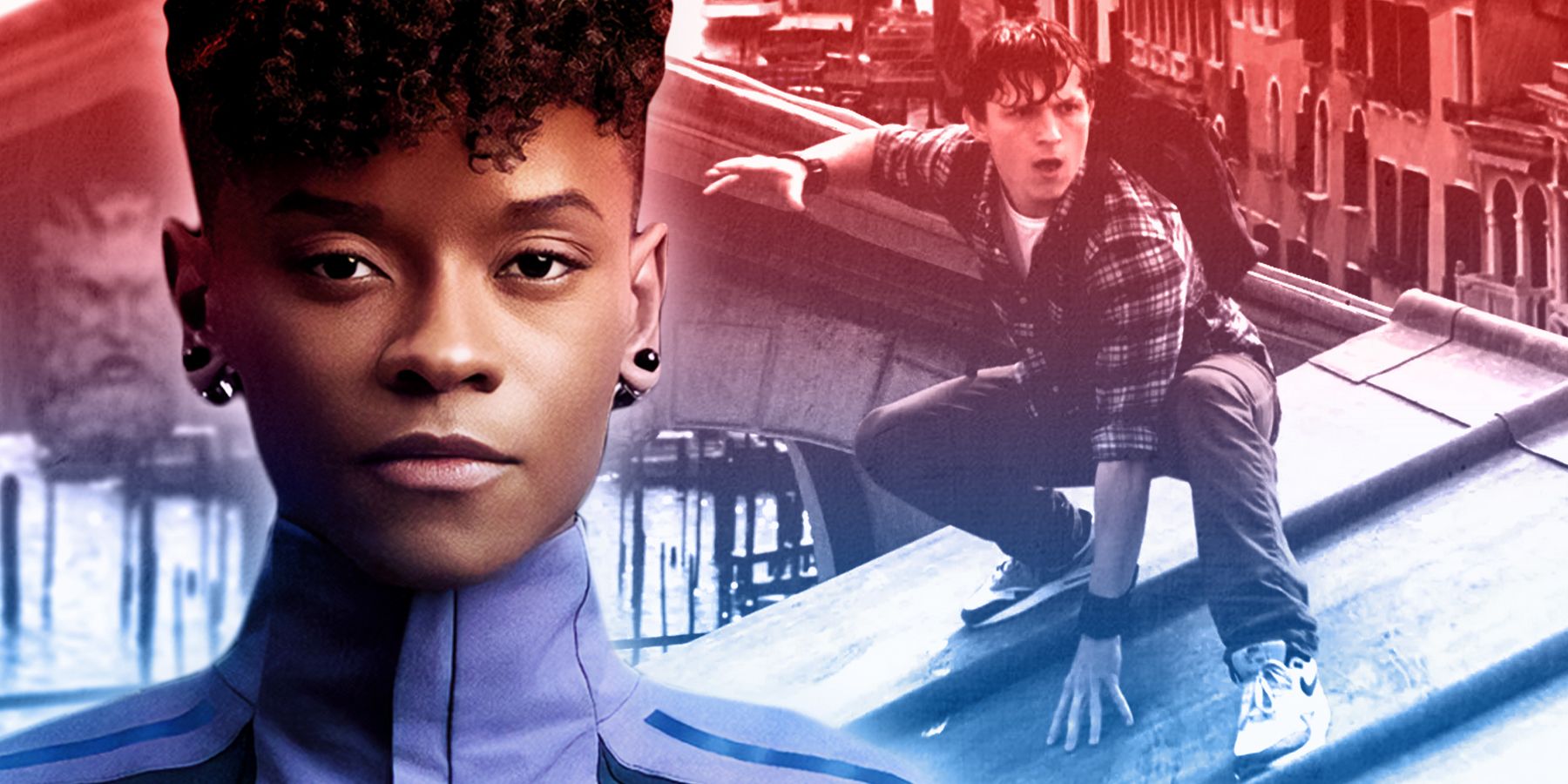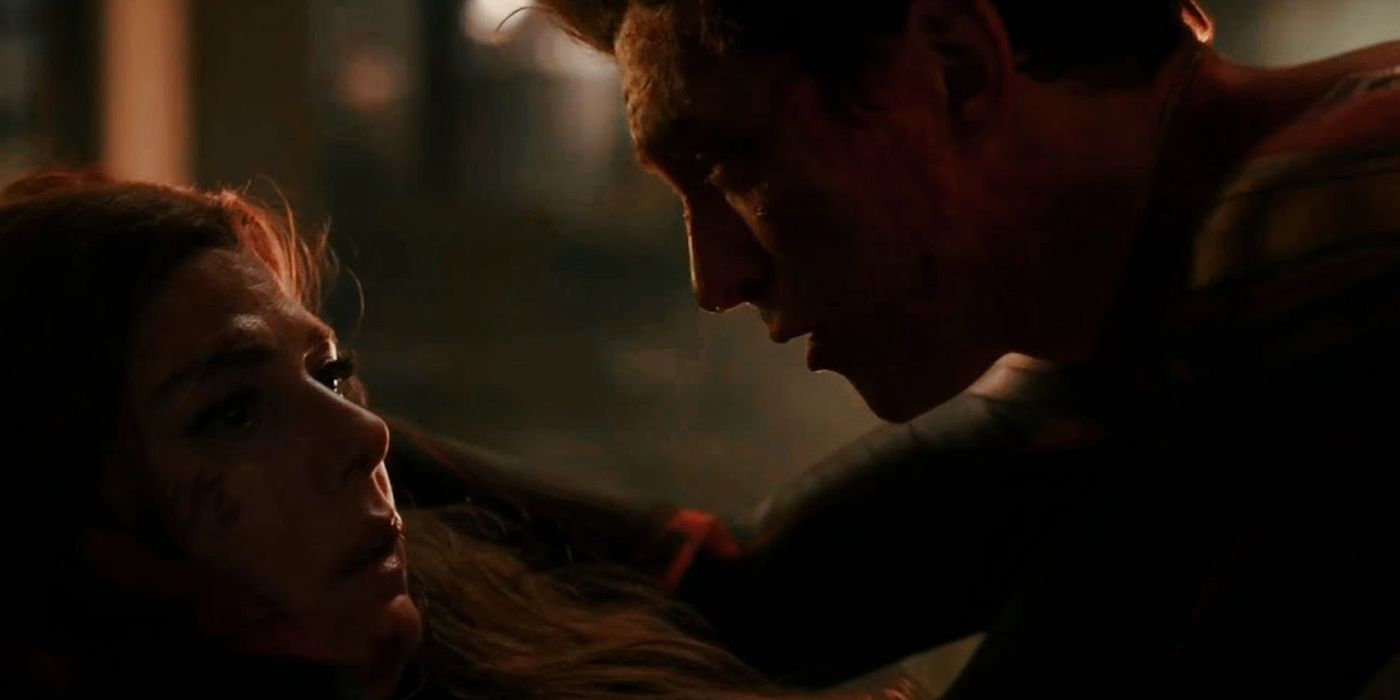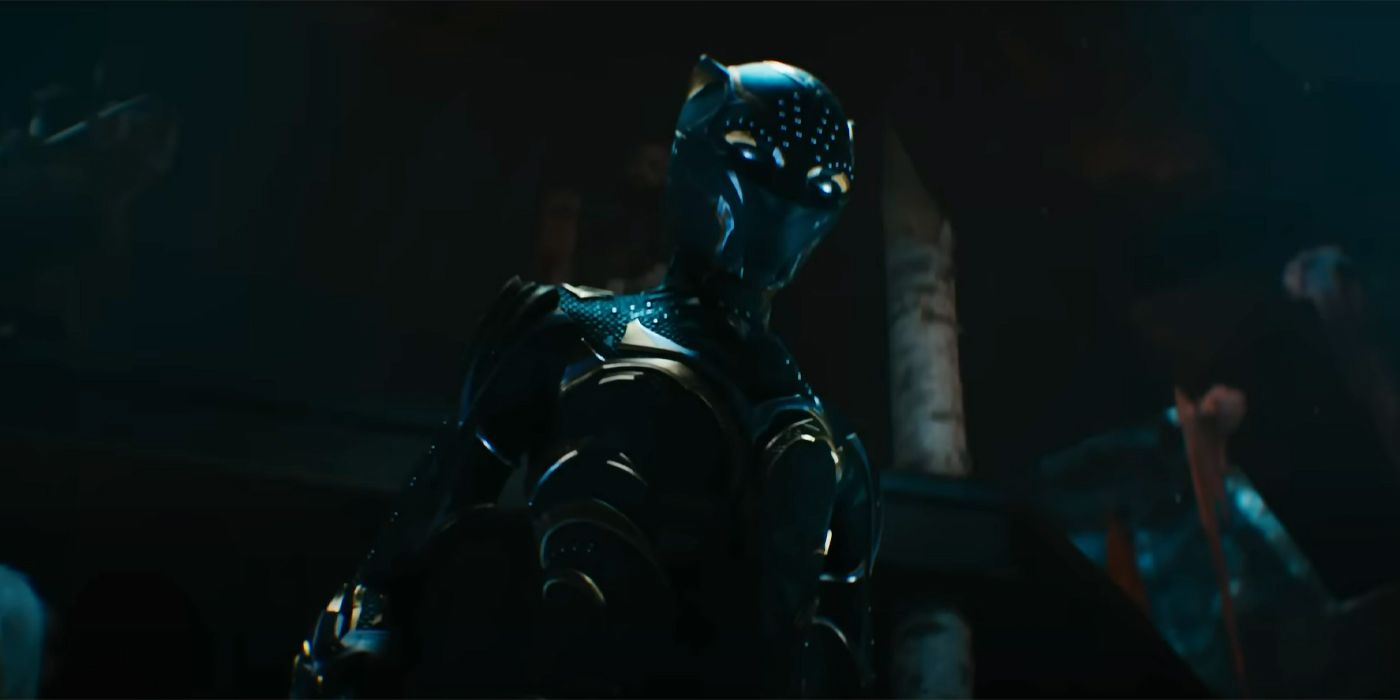This article contains spoilers for Black Panther: Wakanda Forever, now in theaters.
Black Panther: Wakanda Forever officially anoints Shuri as the heir apparent to the late Chadwick Boseman's T'Challa. It's a fitting choice, and the film does an exemplary job of both mourning the first film's star and charting a way forward for the Black Panther movies. Its glowing reception and strong box office figures suggest that fans are ready to embrace Shuri as the new face of the hero, even as she -- and the rest of the Marvel Cinematic Universe -- properly grieve for the previous one.
It sets her on a path very similar to another teenage MCU hero: Peter Parker, who not only arrived in the franchise at about the same time but followed an arc remarkably similar to Shuri's, particularly after Wakanda Forever. Indeed, there's actually a fair amount of fanfiction covering a hypothetical friendship/romance between the two. And considering how important Spider-Man is to Marvel, the parallels with Shuri speak volumes about the MCU's confidence in her. It's a pity the two characters haven't at least met yet.
Shuri and Peter Parker Went From Kid Sidekicks to Tragic Superheroes
Spider-Man famously broke a cardinal comic-book rule when he first appeared in Amazing Fantasy #15 (Stan Lee, Steve Ditko, Stan Goldberg and Artie Simek). Teenagers weren't supposed to be heroes: they were relegated to sidekicks of the Dick Grayson variety. Spider-Man changed all of that, and his status as a high school student gave him plenty of problems that didn't get solved by beating up the villains. The MCU's version of him honors that by starting him as a de facto sidekick -- with Tony Stark acting as his sometimes-reluctant mentor -- and slowly evolving into the stand-alone hero he eventually becomes.
Naturally, that comes with a strong helping of tragedy: beginning with Tony's death, which closely follows the emotional arc of Peter's Uncle Ben (largely absent from the MCU). It continues with Aunt May's death in Spider-Man: No Way Home and culminates in everyone he ever loved losing their memories of him at that film's conclusion. And he has to do all of that while refraining from taking vengeance on The Green Goblin. Only then -- armed with the same sense of tragedy that Uncle Ben held in Amazing Fantasy #15 -- could he become a hero in his own right.
Black Panther takes that to heart in its presentation of Shuri, who begins just a few years older than Peter. While she's essentially an adult -- overseeing important technological development as part of her royal duties -- she retains a youthful sense of playfulness and fun. This comes out in her interactions with T'Challa -- whom she clearly delights in teasing -- as well as their mother. And she's definitely a sidekick, as evidenced by her status as Black Panther's Q Division in the first film. That changes in Wakanda Forever the same way that Peter's life changes in No Way Home. She has to grapple not only with T'Challa's death but her mother Ramonda's death, and yet simultaneously set aside her personal emotional needs for the sake of her people. She concludes the film bereft of family, like Peter, and yet fully committed to her new life as a superhero.
Why Shuri and Peter Parker Would Be Great Friends in the MCU
Furthermore, both Shuri and Peter were victims of The Snap at the conclusion of Avengers: Infinity War, which keeps their ages comparable while giving them both the unique perspective that comes from experiencing the time skip. The two are both scientific geniuses -- Shuri is smarter, but Peter is one of the few people in the MCU who could keep up with her -- and both have had unique experiences that the other would find fascinating (Shuri has been to the underwater kingdom of Talokan, Peter to outer space.). And both have suffered tremendous personal losses in No Way Home and Wakanda Forever, which they must bear while attending to larger responsibilities.
That gives them a colossal amount in common, and in each, the other might find a friend they can lean on when they need to. How and whether that happens remains to be seen, but it makes both of them a little more interesting simply because the possibility is out there. It's a big part of why the MCU works so well: when two characters who have never met onscreen could suddenly have such a natural connection.
Black Panther: Wakanda Forever is currently playing in theaters.



